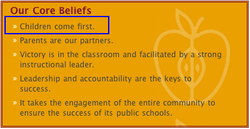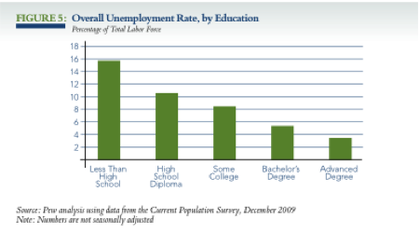We teachers, however, get this early and often, usually without solicitation, and from someone we may not want to talk to about it.
Sometimes it is in the form of formal evaluations from administrators, District walkthrough teams, and others with their biting criticism of our pedagogy (how do they have such deep insight with a 16-minute visit, anyway?). More often, however, it comes from our students who – while I love them to death – have less-than-professional ways of expressing their discontent with our teaching methods.
In my classes recently I have noticed a lot of my students are not understanding and internalizing the concepts we are discussing. As I endeavor to constantly improve my practice, I seriously wonder if the problem lies with them or with me (let’s leave the broken system of American urban education out of this for now, shall we?). I attempt to break concepts down into small pieces, provide video tutorials on the student’s laptops (that they can take home), I guide instruction during class, attempt to manage student’s misdirections, work in small groups and one-on-one, and yet I still have students complaining of the workload.
When I ask them if they continue at home, the usual answer is no. How can they expect to learn without trying at home? Understanding that they might need my help at home, too, I have provided four different ways of reaching me outside of school. I know it sounds weird, but I want them to be able to reach out whenever and wherever they need (and with my new iPhone, it’s easy for me to respond!).
Yet with all this I still find myself coming home after work wondering if I am really all that cracked up to be an educator. I know I won’t truly reach my stride until Year 5, so I push on, but it becomes so difficult sometimes. In conversation with another educator today, we discussed how teachers must be able to forget things that happen in their classroom, otherwise why would they come back after the summer, let alone just one week of school?
So what can we do about this? Talk about it, of course!
I’ve mentioned the Critical Friends program we use at my school before. It is a great way of sharing your concerns with your peers and getting specific feedback to help with problems you are having. The only way to improve is to share your classroom with someone you trust to make critical judgments that will help you in the end. That’s what we do and it has been a great experience so far. I can only wish other teachers get something similar in order to better themselves in order to ensure their students are learning.
We are actually presenting on this topic at the Ethnography Forum at Penn this Saturday. If you are interested in attending, it costs some money unless you are a School District or Penn staff or student – then it’s free! We are presenting at 10:15am on Saturday, February 26th in room 120. Join us!




 RSS Feed
RSS Feed
